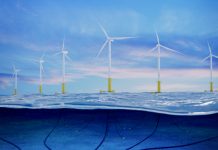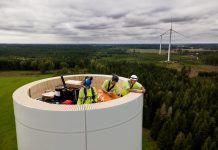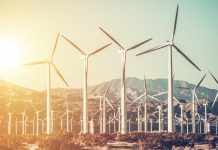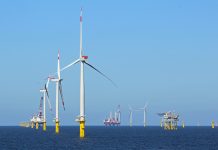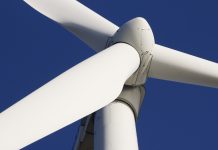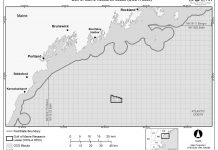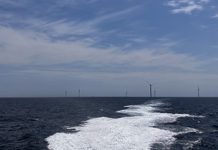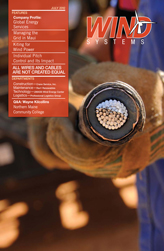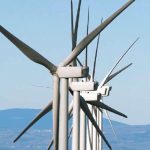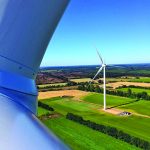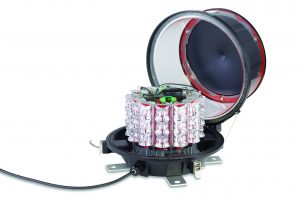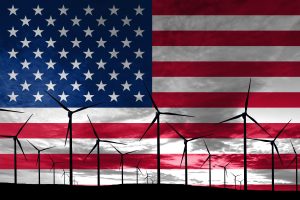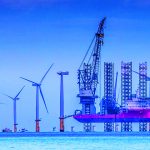Going green doesn’t just mean building the highest and biggest mW hour nacelle. There are many other facets to the wind industry that in some circles go unnoticed. It is easy to give attention to the projects that involve the biggest economical impact, but sometimes the smaller projects tend to be more interesting. If we take a journey to El Paso there is a 73-unit apartment facility that will require no fossil fuels to operate. It will be the first to rely solely on Mother Nature to power the facility.
Harnessing the power of the earth is becoming more and more popular on a consumer level. We are now seeing cars that have solar panels covering their surfaces; an energy solution only available at a premium cost. This is true about the wind industry, too. A renewable energy source that was only available to large energy companies is now becoming an option for everyone.
 After leaving AWEA we can see that there are many manufacturers of nacelles that cater to the consumer level now, which is exactly what we have here. El Paso was recently approved under Senate bill 1910 to allow for net metering to take place. Net metering is the arrangement to sell off any excess generated electricity to local power suppliers, in this case El Paso Electric, for the same price as they purchase the power. This will allow the apartment complex to potentially profit from this venture over time. The estimated cost for each unit expense-wise is around $8 per year.
After leaving AWEA we can see that there are many manufacturers of nacelles that cater to the consumer level now, which is exactly what we have here. El Paso was recently approved under Senate bill 1910 to allow for net metering to take place. Net metering is the arrangement to sell off any excess generated electricity to local power suppliers, in this case El Paso Electric, for the same price as they purchase the power. This will allow the apartment complex to potentially profit from this venture over time. The estimated cost for each unit expense-wise is around $8 per year.
The complex will be utilizing Xzeres wind nacelles and an unknown brand of solar panels to create electricity. The nacelles will feature 12-foot blades that are capable of producing 10kW hour at 12m/s and sit atop a 24-meter monopole tower. The lift was relatively straightforward from a rigging and hoisting standpoint, but due to site challenges the project took two days to set both nacelles. The site challenges consisted of wind [which is normal large or small] and heavy construction traffic. The site now is only a few weeks away from completion, but at the time of this writing, was bustling with many types of construction crews. Even with these challenges we were able to finish the project on time.
The 2,300 lb. nacelle did not require a mammoth 16,000 or even a 2250 to erect. What we used, was a pair of mid-20-ton boom trucks; one to hoist a man basket and the other to hoist the actual nacelle.
We were excited and proud to be a part of a project that is so small, but has such a large impact. What is interesting about this industry is that the technology can be scalable to power cities and states to something as small as your house. It all started in New Hampshire 30 years ago with a site of 20 – 30kW nacelles. Now when you go to West Texas it is hard to escape the fact that you are in turbine country. The land is covered with 1.5 mW nacelles spinning almost by magic. Now we are seeing nacelles being utilized on a consumer basis in our own back yards; something I find truly remarkable.
From a construction stand point we are at the forefront of technology, innovation, and hard work. We have been making our lifts look like miracles for over 52 years. This isn’t something we fell into, though. We have been working 24/7 making this happen, and instead of collecting awards, we have been collecting hours. We have taken the time to learn the wind industry, not just from the construction or maintenance side, but from all aspects. We have assembled a team that is truly remarkable, and a majority them have double-digit experience. It is easy enough to say we know wind, but we really do know wind. Day in day out we are on the mesas erecting 2250, 8460’s, and our new 16,000; a construction feat within itself. We know wind on a large scale and on a small scale. Weirdly enough sometimes it isn’t about being awarded the big maintenance contract. Sometimes the smaller project is the one that is the most exciting.



